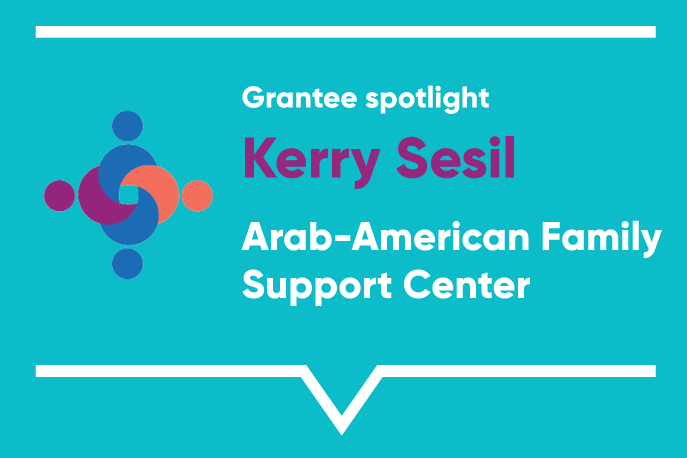Earlier this month, we spotlighted the YWCA of Southern Arizona, an organization working to engage a community of Latina sexual assault survivors. We call their work “culturally competent,” which means the organization understands the needs of a specific group and has designed programs to meet them. This week, we want to highlight the work of another RALIANCE grantee, which received funding through our partnership with the National Football League to take on their own culturally competent work.
The Arab-American Family Support Center (AAFSC) in New York received a $50,000 RALIANCE grant for a project aimed at supporting local youth, particularly in terms of building healthy relationships. This week, we sat down with Kerry Sesil, the director of development and communications at AFFSC, to discuss the grant’s role in making a difference in young people’s lives.
RALIANCE: Can you describe AAFSC’s work?
Sesil: AAFSC has provided services to immigrants and refugees for 25 years. While we were founded by the Arab-American community and continue to serve that population, we are open to serving people in need from any background. Our staff collectively speaks 27 different languages, which enables us to support populations that other organizations might struggle to reach.
We provide a range of services for individuals navigating new lives in New York City – from supporting families when there has been an instance of child abuse or neglect, enrolling individuals in health insurance, or providing emergency financial assistance. What I’m really excited to talk about today is our youth programs, which RALIANCE’s grant helped us to significantly grow.
RALIANCE: Why are youth-specific programs so important to your work, and how do you ensure they’re successful?
Sesil: Unfortunately, sexual and gender-based violence remains a prevalent issue, and we see every day the adverse impact this violence can have on a child’s development. So, we realized that we needed to play a role in helping young adults understand the nature of healthy relationships, while also supporting them in all aspects of their lives. For example, since we primarily support immigrants, we recognize the need to help young adults navigate their cultural identities. Our staff are representative of the communities we serve and have relatable lived experiences that make their engagement with our youth authentic and meaningful.
MENar, which means “light” in Arabic, is our program for young men, and Audacious Young Women of Action (AYWA, which means “yes” in Arabic), is our women’s program. We built our programs to be fun and engaging, so that the youth look forward to being actively involved. For example, we found that integrating sports and improv were important to keeping young people engaged with the programs. We have learned this by prioritizing participant feedback in the development of our curriculum and programming.
RALIANCE: What specific youth needs did the grant help you to meet?
Sesil: For young people in the communities we serve, we found that there was significant stigma around receiving mental health support. The RALIANCE grant enabled us to integrate mental health specialists into our youth programs who provide support in a group setting and help young people understand they are not alone and that seeking help is normal.
RALIANCE: Has the grant enabled you to expand your reach?
Sesil: Absolutely. With the grant’s support, we were able to expand the geographic footprint of our programs to serve additional communities and meet more often. Though virtual for now, AYWA now meets three times a week, and MENar meets twice a week. What’s great about this expansion is that it leads to even more growth. Word of mouth has been critical to bringing new young people to our programs, and we’re incredibly grateful that people refer others to the programs. We anticipated serving about 50 young people. Ultimately, we supported 180 young people.
RALIANCE: How can our readers support your organization?
Sesil: Though some of our programs are virtual during the pandemic, we remain an essential service provider and our doors are still open. Our case workers continue to visit homes as needed, and we are offering emergency financial assistance to people in need. Any donations made help support this critical work. We are also currently seeking volunteers who can directly connect with young adults who need academic support and tutoring, which is especially important now for students learning virtually with English as their second language. If you have the skills and time to volunteer, please reach out!
RALIANCE provides consulting, assessment, and employee development services to help build more equitable workplace cultures and create environments free from sexual harassment, misconduct and abuse. We stand ready to support your organization’s goals – contact us today at info@raliance.org to get started.

